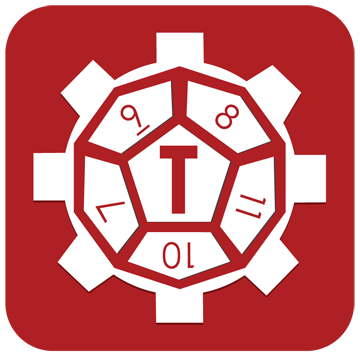RPG Taxonomy: Advancement
Posted by
Thorin Tabor
on April 1, 2014, 3:01 p.m.
I think I’ve mentioned this before: One of the biggest difficulties in a group setting with talking RPG mechanics in the abstract that so many different terms mean so many different things to different people. There isn’t any standard RPG taxonomy. And that leads to all sorts of different miscommunications.
Now, I know I’m unlikely to start any sort of widespread adoption of standardized terminology. Roleplayers are a disparate and fiercely independent demographic. But sometimes I want to talk about mechanics in these blog posts without having to redefine my terms all the time. And in these sort of situations it’s useful to have a concrete definition of the term as I use it all ready to link to.
That’s what this post is meant to partially address. Hopefully it will be the first of a short series of posts giving standard definitions for certain RPG concepts, as I use the terms.
In this particular post I want to define different mechanics used in RPG advancement systems. Broadly, I break down advancement mechanics into two categories: when characters advance and how characters advance.
Advancement When
In almost every RPG on the market player characters can advance in some way over the course of a game. This usually takes the form of becoming more capable or more powerful, but it also sometimes takes other forms. Regardless of what form it takes, however, there is some point at which advancement occurs. I break this "Advancement When" down into four broad categories. Almost every RPG will fall into one or more of these.
- Level Up: In these systems the character reaches a fixed point at which they get to advance in some way. This point could be when the accumulation of "experience points" reaches a certain threshold, as with Dungeons & Dragons or Savage Worlds, or it could be a fixed point simply declared by the GM, such as with leveling up in True20 or the milestones of Fate Core. The distinguishing feature of this type of advancement is the fixed threshold.
- Point Buy: In these systems the character reaches a variable threshold at which point the player can decide to advance. This is often also measured in the accumulation of point to the threshold, such as with GURPS' character points or Storyteller's experience points. The distinguishing feature is that the point necessary for different advancement options varies between options - it's not fixed
- Incremental Growth: This will probably by the most controversial category. In these systems a player character grows by small amounts as a consequence of play. Usually these systems are not characterized by having any sort of point accumulation towards advancement, but rather advancement simply happens each session or when some event in the game world occurs. Examples include skill increases in Runequest or memories becoming experiences in Freemarket. The distinguishing feature is that there is no abstracted measure of advancement towards a threshold - either the character gains some ability or not.
- No Advancement: A rare few systems have no notion of character advancement. Characters are made and then simply are. Many storygames fall into this category. The Spirit of the Century implementation of FATE falls into this category as well, although many fan-made advancement systems for the later exist.
Advancement How
The other key component of character advancement systems in how a character can get to the point of advancement, regardless of when they advance. I break this down into two categories, assuming advancement happens at all in the system. Almost all systems will fall into one or both of these.
- Metagame: In these systems the player does something on a metagame level that earns the character experience points. Common examples include earning points for "good roleplaying" such as in most Storyteller games, advancement rewards for attending sessions, bribing the GM with pizza, writing character journals, etc. The distinguishing feature is that the player takes the action that benefits the character's advancement.
- In-Game: In these systems advancement happens mechanically because the character did something in the game world. Examples include the traditional earning experience points by overcoming encounters, such as in Dungeons & Dragons, acquiring memories that later become experiences, such as in Freemarket, and even includes eating the souls of other vampires, such as with diablerie in Vampire the Requiem. The distinguishing feature is that the advancement mechanically comes from an in-game action of the character.
Final Thoughts
Now, there is one other axis in character advancement that we haven't touched upon yet here, and that's the openness of character advancement. I would like to discuss that, but not now. I think that aspect of advancement could merit an entire post to itself, but mostly it's probably important to define some terms regarding the mechanical representation of characters first. I hope to deal with these issues in the future post.
Share Post
 Tab Creations
Tab Creations
0 Comments on RPG Taxonomy: Advancement
There are currently no comments
New Comment